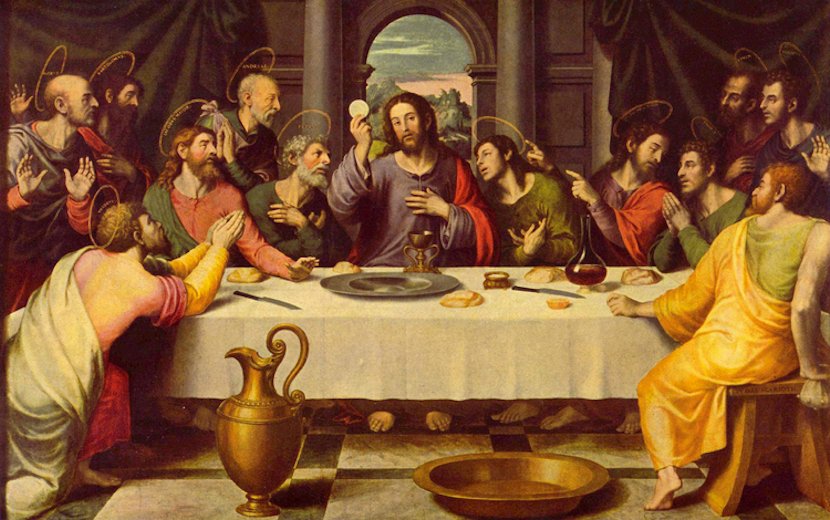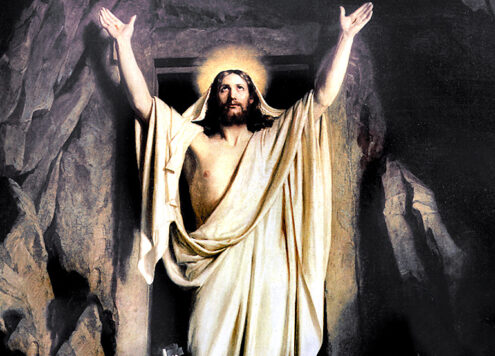Jesus declares that the bread and the wine of the Eucharist is indeed His body and His blood but He does not explain the process whereby this identity takes place. Why then would Christians, who believe in following Jesus, distance themselves or hate one another because of their disagreements on how He is present in the Eucharist. That is one of the greatest scandals to have plagued Christians for centuries. The disciples of Jesus also had their doubts about the Eucharist. Many of them objected, saying: “This saying is hard; who can accept it?” And, as a result, many of them “returned to their former way of life and no longer accompanied Him.” (John 6: 60, 66). But, Peter spoke up for the twelve, after Jesus asked them if they also wanted to leave Him, by boldly asserting his faith: “Master, to whom shall we go? You have the words of eternal life.” (John 6: 60, 67-6). We must remember that the real presence of Jesus in the Eucharist is a mystery. It is not a problem that can be analyzed, studied, and compartmentalized. It is simply a mystery of faith, and the best way to appreciate this mystery is to live it by receiving Christ worthily and by worshiping at the Eucharistic banquet which He has commanded when He said: “do this in memory of me.” (Luke 22: 19)
The Eucharist is such a rich sacrament that it is the source and the summit of the Christian life. We are all one with the Lord and with one another when we share in the breaking of the bread, the body of Christ. When we consume the bread and the wine, we are taking Christ into ourselves and we become a living temple in which He tabernacles Himself. Not only is Jesus present everywhere: in creation, in His word, where two or three are gathered together in His name, and among the destitute of the world. He is also especially present in a particular spot at a particular time when we receive Him into ourselves at holy mass.
Jesus gave us the Eucharist after the miracle of the multiplication of the loaves and fishes(John 6: 51-58). His listeners thought it would pay to follow a leader who supplied food in such abundance. But, Jesus had another hunger in mind, another kind of life. And so, Jesus advanced the discussion and focused the interest of His listeners beyond the satisfaction of a full belly to acceptance of His very self as the source of life. At the Eucharist, we accept Jesus’s invitation to the meal of salvation. We recognize our own need for repentance, conversion, and reconciliation. We acknowledge our hunger for the Lord. We discover we are bound to one another as we share the same sacred meal together. We also commit ourselves to live according to the teachings of Jesus, and we pledge ourselves to go forth, peacefully, to serve the Lord by satisfying the hunger and thirst of our brothers and sisters in need.
May we all experience the true gift of the Eucharist that unites us to the Lord and impels us to spread love and joy around us.
—Fr. Hugh Duffy











6 Comments
Angélica
This is a beautiful message! I feel blessed to receive the word of God and I give thanks to the Lord for you Father Duffy. God God bless you always, Angelica
Jan
Thank you for the wonderful insights, Fr. Duffy!
Dr. G. Heath King
Thank you Father Duffy for highlighting the Holy Eucharist as the « source and summit of Christian life ». The theological critiques of Christ’s presence in the Eucharist fail because they apply mere reason to what is a matter of faith.
Dr. G. Heath King
Faith is in this realm of a higher order than reason, for it requires a « leap » as Kierkegaard put it, with one’s entire being, beyond the familiar temporal comforts of the intellect.
Only in this way does one attain ‘contemporaneity’ with Christ, that is, communion, eclipsing the mere ego.
Dr. G. Heath King
This paradoxical eternity-in-time is a transformative experience that mere reason cannot enact or explain. Yet the ‘communion’ is manifest to anyone who has experienced it.
Kevin P. Tuohy Sr.
Fr. Duffy,
I thank The Lord Father in Heaven for my mere existence in His earthly kingdom daily. Not being burdoned by a lack of faith, I don’t concider it an option to question His reasoning or His will, only to follow it , always, or at least to try to.
Godspeed and care.
K.P.Tuohy Sr.